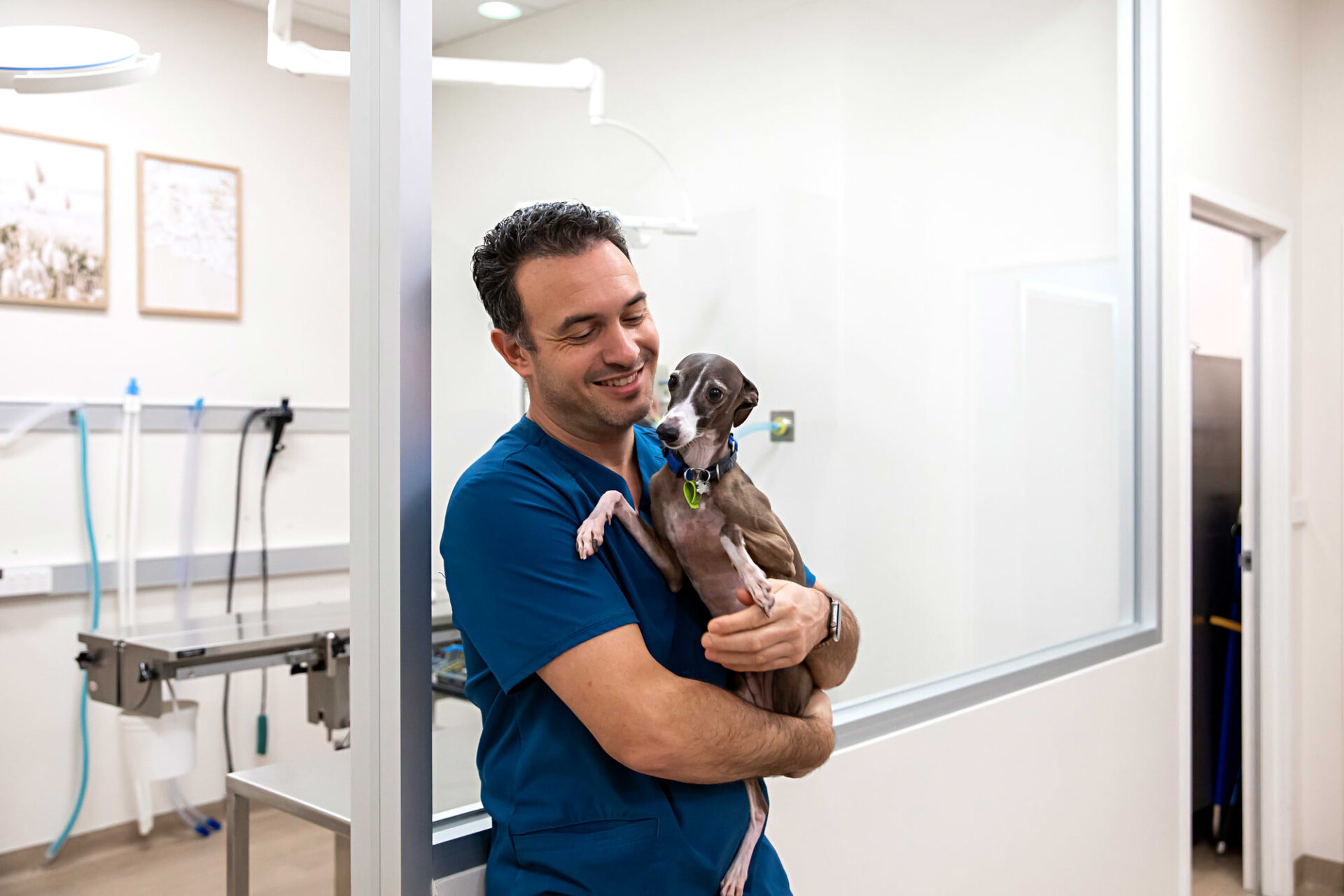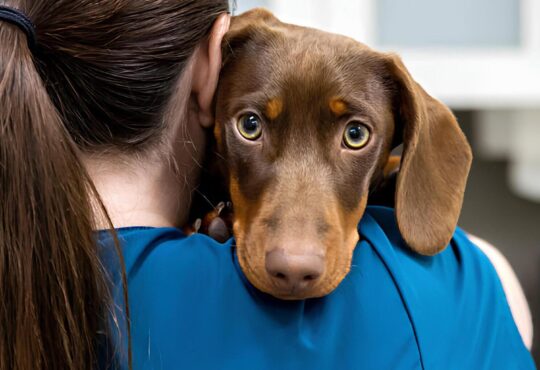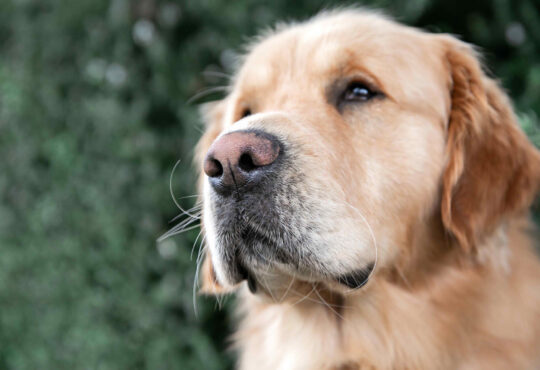An Extracapsular Repair (ECR) is a common procedure that involves using a suture material to compensate for a cranial cruciate ligament (CCL) tear or rupture. This technique achieves joint stability by providing sufficient support and eliminating the need for the now-injured CCL, improving your pet’s mobility and overall quality of life.
Benefits of ECR surgery:
- Stabilisation of stifle joint
- Less invasive in comparison to a TPLO
- Suitable for smaller dogs
- Reduced risk of complications
- Improved long-term prognosis
- Better quality of life
All of our extracapsular repairs are performed by our principal veterinarian Dr Adam Stefani, with assistance from Dr James Martin, and supported by our team of veterinary nurses.
Prior to the surgical procedure commencing, the patient is provided with a “pre-medication”. This involves a combination of drugs to facilitate pain relief and assist the induction, maintenance, and recovery from the general anaesthetic. Intravenous fluids are administered throughout the procedure.
Once the surgical site is prepped and sterilised for surgery, an incision into the joint is made. The joint capsule is explored and the cruciate ligaments and menisci (the cartilage pads in the stifle) are inspected for signs of damage. Damaged tissue is cleared out of the joint to facilitate healing and recovery.
In order to place the suture material, small holes are drilled into the tibia and femur at precise locations. The suture is then passed through these holes. The tension of the suture is adjusted to mimic the function of a normal CCL and stabilise the stifle joint. The surgical site is then closed with sutures.
The patient is then closely monitored by our surgical team during the recovery period.
Post-Operative Care
Exercise Restriction
Rest and restricted activity is generally required for a period of 6-8 weeks or as specified by the veterinarian. Confinement to a small, quiet room and/or crate and using a leash when out for toileting is recommended to help prevent excessive movement.
We understand that keeping a dog quiet and still is often easier said than done. At-home enrichments, such as slow feeders or puzzle toys, can be a great way to entertain your dog.
Wound Management
It is important to prevent excessive licking of the surgical site to avoid a possible infection and/or removal of the sutures. An e-collar, cone or other alternatives need to be used, especially when unsupervised (e.g. overnight or when you are not at home). Additionally, we can supply you with a bitterant solution to deter them from licking the site.
Patients are not able to swim or be bathed until the surgical site has healed and sutures removed.
Rehabilitation
A structured rehabilitation program for your dog after surgery is critical to their recovery. This guidance is tailored to the individual patient and their personal progress. At Mornington Vet Clinic we understand that there are numerous forms of rehabilitation therapy and are happy to adjust the rehabilitation program to ensure that it works for both you and your dog.
It is vital to the healing process that controlled walks and rehabilitation is introduced under the guidance of your veterinarian to ensure successful healing and joint function.
I’ve booked my pet in for an ECR - what can I expect?
Pre-Operative Phone Call
The day prior to surgery, one of our nurses will call you to confirm your admission time and provide specific instructions regarding fasting and withholding water. During the phone call, we can address any last-minute questions or concerns you may have.
Admit appointment
During admission, the surgery nurse will ask you some questions about your pet and you will be asked to fill out and sign a consent form that allows us to admit them into our hospital and perform surgery. We will ask you for the best number to contact you on while your pet is with us – it’s important that we have a reliable contact number for you in case we have any questions or concerns, so we can update you once they are awake. Admission usually takes around 5 minutes.
Discharge appointment
Once your pet is in recovery, we will call you to provide an update and book a discharge appointment. These appointments are generally between 4 pm and 6:30 pm, depending on how your quickly your pet recovers from the anaesthetic. The vet will discuss aftercare requirements and medications to be given at home – a hard copy of this information will also be provided for you to take home.
Post-Operative Progress Checks
Progress checks are included throughout the recovery process to ensure proper healing and to discuss rehabilitation for optimal results post-ECR.
- Day 1 post-op: Phone call with nurse to check on your dog’s recovery overnight
- 2 Weeks post-op: Appointment with a veterinarian to re-examine the stifle
- 6 Weeks post-op: Appointment with a veterinarian to re-examine the stifle and reassess general mobility
These post-operative checks are free of charge.
While our staff are very familiar with extracapsular repairs, we understand the consideration and significance of such a procedure and as with any service we provide, we value your trust and are always happy to answer any questions or concerns. If you would like more clarification regarding the diagnosis and treatment of a cruciate rupture and/or the surgery described above, please don’t hesitate to get in contact.


